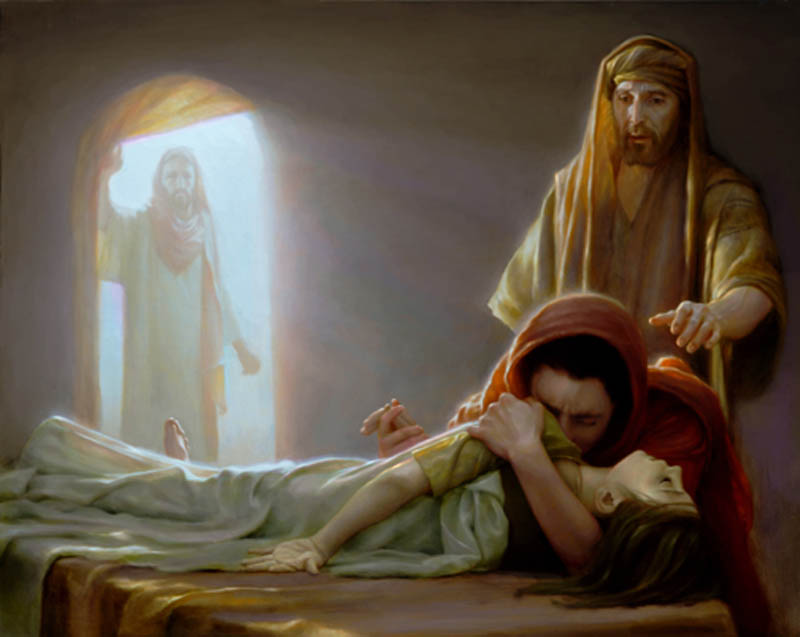XIII SUNDAY IN ORDINARY TIME - Mark 5:21-43
Humanity has never accepted death as being the natural outcome of our stay here on earth. Within us, there is an intense and deep longing for life to the full. Throughout the ages, all civilisations have tried to deal with death in different ways, always trying to come to terms with it. In the book of Genesis, death is presented as a consequence of man’s disobedience and revolt against God, the source of life. Reflecting on death’s cause, the book of Wisdom accuses the devil of bringing death into the world, due to his envy: “God did make man imperishable, he made him in the image of his own nature; it was the devil’s envy that brought death into the world” (Wis 2:23-24). Looking to God himself, the book of Wisdom tells us that “death was not God’s doing, he takes no pleasure in the extinction of the living” (Wis 1:13). Death is understood as something evil, which comes from the evil one. If we entrust ourselves to God, he will transform our death into life.
If we look at ourselves within the whole creation, we discover that human beings join everything else that is created in falling short of perfection and completion. We are not divine and by ourselves, we are limited, weak and fragile. As humans, our condition is to be mortal. Being created, we live our lives in a body that grows old and will end up in decay. We may try to delay that process, but we are unable to stop it. This earthly life, like all creation, is a gift of God’s love. However, having created human beings in his likeness, God has for us a plan of eternal life, which only can be carried out, in communion with Jesus Christ, since he is resurrection and life.
This earthly life is hard and painful; suffering seems to be always by our side. This Sunday’s gospel presents Jesus allowing himself to be touched by the suffering of ours. It is the suffering of Jairus, the father whose little girl is dying. She represents a suffering difficult to understand and to accept: the suffering of the little ones who have not had time yet to do evil. In such cases, we question God, unable to find an answer. Why do such ones suffer? Jesus felt the pain of that family and forgot everything else in order to go and attend to their plight. And by doing so, he reaffirmed God’s promise of Life.
Mixed with the story of Jairus’ daughter, we are presented with the story of that woman who suffered for many years from a painful and debilitating condition. There are so many people in the same situation! To live with such limitations is a difficult learning process because we never get used to pain and to suffering. There are many situations in which the patients, like that woman, live in hiding, ashamed of being known or seen by others. That’s why Jesus brought her into the open, for all of us to realise that there are no shameful sicknesses and that all deserve our compassion and our care.
“Hear, O Lord, and be gracious to me!
O Lord, be my helper!” (Ps 30:10)

No comments:
Post a Comment